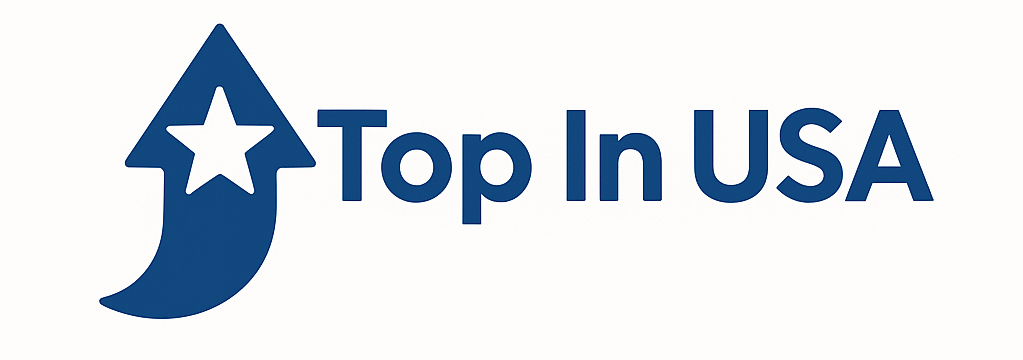Building and maintaining a healthy relationship is one of life’s most rewarding yet complicated experiences. Many of you might have grown up without role models who demonstrated secure and mature partnerships. School didn’t exactly offer a class titled “How to Have a Loving Relationship 101,” so it’s no surprise that many couples find themselves stumbling over the same hurdles—communication breakdowns, emotional disconnect, financial stress, parenting struggles, or even just too much screen time.
Add to that the extra complexities that LGBTQ couples often face—identity validation, cultural acceptance, or family dynamics—and the road to a fulfilling partnership can feel even more overwhelming. That’s where intentional support like lgbtq counseling in Seattle becomes not just helpful but often necessary.
Why Couples Therapy Matters More Than You Think?
Couples therapy isn’t just about fixing fights or learning how to argue better. Research consistently shows that therapy can decrease relational distress and improve both individual and couple well-being. When you think about it, the math adds up—better communication, deeper emotional intimacy, and more secure bonds create happier people. For LGBTQ couples, though, traditional counseling sometimes falls short.
Many therapists focus only on general relational concerns like division of chores or financial disagreements. But romantic partnerships are about much more than running a household together. The physical and sexual aspects of intimacy distinguish a relationship from a friendship, yet many counselors lack specialized training in human sexuality. Without addressing that part, therapy often leaves a critical piece of the puzzle unsolved.
Starting with Referrals and Recommendations
Finding the right counselor in a city as large and diverse as Seattle can feel like looking for a needle in a haystack. One of the most practical first steps is simply asking around. Friends, family members, or even trusted colleagues may know someone they’d recommend. You can also ask your doctor, faith leader, or community center for referrals.
If you’re comfortable, dig a little deeper—what made their experience with that therapist helpful? Were there any downsides? When the search feels overwhelming, personal stories and recommendations can give you a clearer picture of who might be a good fit, especially if you’re looking for an lgbtq therapist in Seattle who understands both relationship and identity concerns.
Credentials Matter: Who’s Qualified to Help?
Not all therapists have the same training. Just as you wouldn’t take your car to a lawnmower mechanic, you don’t want to see someone who isn’t trained in working with couples. Washington State licenses several categories of mental health professionals, each with different strengths. Psychiatrists are medical doctors who can prescribe medication and diagnose complex mental health conditions. Psychologists hold doctoral degrees and provide both testing and therapy.
Then there are master’s-level clinicians: Licensed Marriage and Family Therapists (LMFTs), Licensed Mental Health Counselors (LMHCs), and Licensed Clinical Social Workers (LCSWs). Each can effectively treat couples, but what matters most is whether they have specialized training in relational and intimacy-focused therapy.
Before booking a session, check the Washington State Department of Health’s Provider Credential Search to confirm licensing and disciplinary records. It’s worth the extra step—it ensures the person guiding your most intimate conversations is both qualified and accountable.
Searching Online for Specialized Training
Online therapist directories can save you hours of guesswork. Psychology Today, GoodTherapy, TherapyDen, and AAMFT (American Association for Marriage and Family Therapy) all allow you to filter by location, specialty, and even insurance. Profiles often highlight areas of expertise, approaches, and sometimes even videos that give you a feel for their style.
Pay attention to whether they list specific training in couples approaches like Emotionally Focused Therapy (EFT), Gottman Method, or Psychobiological Approach to Couples Therapy (PACT). These methods are evidence-based and provide structured frameworks for helping couples reconnect.
Just as importantly, seek out someone who explicitly states cultural competence and LGBTQ affirmation. Therapy works best when you feel seen and understood, not when you’re stuck explaining or defending your identity.
Popular Couples Therapy Approaches You Should Know
Different therapists use different methods, and each has its strengths. Emotionally Focused Couples Therapy focuses on helping partners regulate emotions, strengthen attachment, and increase intimacy. The Gottman Method emphasizes building friendship, managing conflict, and nurturing positive interactions.
PACT combines neuroscience, attachment theory, and arousal regulation to help couples recognize unconscious patterns that sabotage connection. Then there’s Relational Life Therapy, which dives deep into the power dynamics and emotional habits shaping your interactions. Premarital approaches like Prepare-Enrich or SYMBIS can help couples get ahead of potential struggles. These approaches aren’t just academic theories—they’re practical, tested systems that therapists use to guide couples out of cycles of blame and back into partnership.
What LGBTQ Couples Need from Therapy
Every couple faces challenges, but LGBTQ couples often navigate additional layers—social stigma, family acceptance, cultural stereotypes, or even safety concerns in some environments. A supportive counselor not only recognizes these challenges but weaves them into therapy so they’re addressed, not ignored.
Imagine discussing intimacy with someone who assumes heterosexual norms or fails to grasp the weight of coming out struggles. It can feel invalidating and frustrating. That’s why finding an LGBTQ therapist in Seattle is so crucial. Therapy in this context isn’t just about who forgot to do the dishes—it’s about balancing external pressures with the intimate, internal health of your relationship.
Where Pleasure Matters Therapy Fits In
Some therapy centers go beyond surface-level counseling. Pleasure Matters Therapy acknowledges that while communication and conflict resolution are essential, intimacy challenges don’t magically disappear once chores are divided fairly. Unresolved physical or sexual concerns often drive emotional distance and resentment.
Therapy here doesn’t treat intimacy as a side issue; it’s integrated into the work of building a secure and satisfying partnership. By focusing equally on emotional, physical, and relational dimensions, couples get a holistic framework that addresses every layer of connection. For LGBTQ couples, this approach can be especially meaningful, helping partners navigate not only their relationship but also the societal narratives that often complicate it.
Making the Most of the First Consultation
Most therapists offer an initial consultation, either free or at a reduced rate. Treat it like an interview—it’s your chance to see if the therapist is a fit for both of you. Come prepared with questions: What’s your experience working with LGBTQ couples?
What therapy models do you use? How do you approach intimacy concerns? What can we expect from the process? Notice not just the answers but how you feel in the room. Do you both feel safe, respected, and heard? If not, it’s okay to keep searching. Therapy is a partnership, and comfort with your therapist is as important as their credentials.
Trusting Your Gut While Building Confidence
At the end of the day, research and referrals can only take you so far. Trust matters. If a therapist seems dismissive, judgmental, or too rigid, move on. The right fit leaves you feeling understood—even if therapy itself challenges you. LGBTQ couples, like all couples, benefit most when therapy balances guidance with genuine care.
Over time, as communication improves and intimacy feels less like a battlefield, confidence grows. Both partners can start showing up authentically, without fear of rejection or misunderstanding. And that’s the real goal—relationships where you don’t just survive but thrive.
Conclusion: A Path Forward for LGBTQ Couples
Relationships don’t come with instruction manuals, and for LGBTQ couples navigating both universal and unique challenges, the journey can sometimes feel exhausting. But support is out there.
With intentional effort, evidence-based therapy, and the right professional guidance, couples can strengthen their emotional bond, rekindle intimacy, and navigate external pressures with resilience. Whether you begin with referrals, search online, or explore specialized methods, the key is finding a counselor who understands not just relationships but the specific nuances of LGBTQ identities.
A resource like Pleasure Matters Therapy demonstrates how addressing both emotional and physical intimacy together leads to deeper, lasting connections. Therapy, at its best, isn’t about fixing broken people—it’s about empowering loving partners to grow together. For LGBTQ couples in Seattle, that path begins with the right support, a little courage, and the willingness to trust that transformation is possible.




